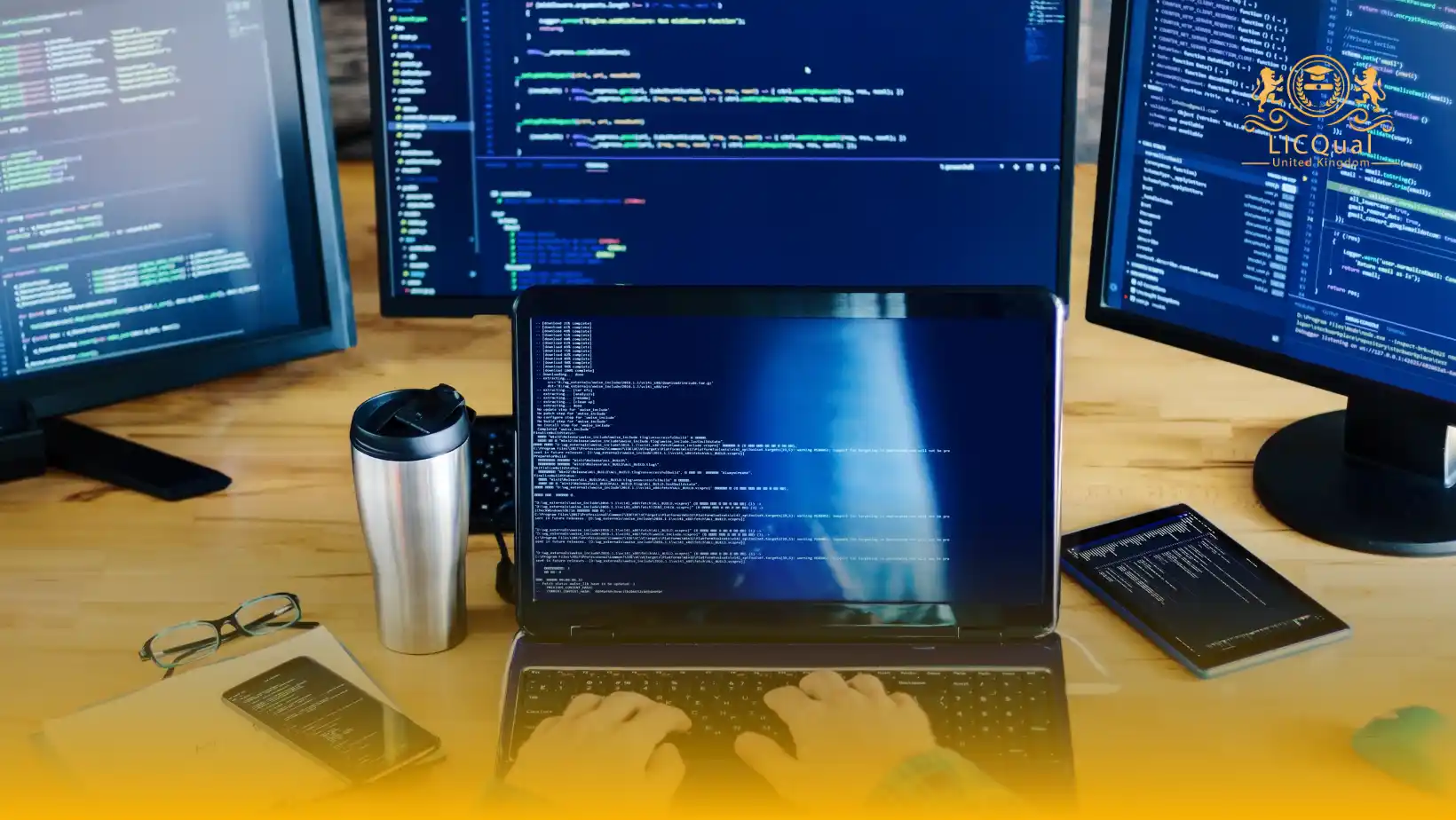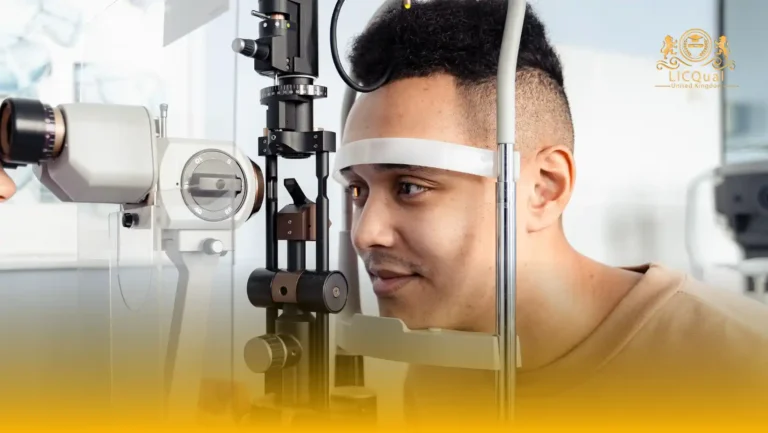The LICQual Level 4 Diploma in Digital & IT – Software Tester is a specialised, advanced qualification designed for individuals seeking to build a professional career in software quality assurance and testing. LICQual Level 4 Diploma in Digital & IT – Software Tester programme provides the knowledge, technical skills, and professional behaviours necessary to plan, design, execute, and evaluate software tests to ensure digital products meet required standards of functionality, performance, and security.
In today’s rapidly evolving technology landscape, software testing is critical for delivering reliable, efficient, and user-friendly solutions. This diploma develops expertise in both manual and automated testing, preparing learners to contribute effectively to software development projects and ensuring that products are fit for purpose. By combining theory with hands-on practical training, learners will gain the confidence to work with industry-recognised tools, apply established frameworks such as ISTQB and BCS standards, and operate effectively within modern development environments.
Whether aiming for a role in software development, IT consultancy, or digital quality management, this qualification offers a solid platform to progress in the global digital and IT sector. LICQual Level 4 Diploma in Digital & IT – Software Tester is ideal for those looking to advance from foundational IT roles into specialised testing positions or for professionals seeking to formalise their experience with an internationally recognised credential.
The LICQual Level 4 Diploma in Digital & IT – Software Tester delivers a comprehensive curriculum that combines core testing principles with practical, job-ready skills. Learners will develop the ability to design and implement detailed test plans, execute both functional and non-functional tests, and apply regression, performance, and usability testing techniques. The course also covers the use of test automation frameworks and tools, enabling learners to increase efficiency and consistency in software validation processes.
A key focus is placed on industry compliance and security standards, ensuring that graduates can meet the expectations of modern software development practices. Participants will learn to collaborate effectively within Agile and DevOps teams, contribute to continuous integration and delivery pipelines, and produce clear, concise testing documentation for stakeholders.
Graduates of the LICQual Level 4 Diploma in Digital & IT – Software Tester will be well positioned for roles such as Software Tester, QA Engineer, Test Analyst, Automation Test Engineer, User Acceptance Tester, and Software Quality Consultant. The qualification also opens the door to further study in areas such as advanced software engineering, IT project management, and higher-level quality assurance disciplines, ensuring excellent progression opportunities in the digital technology sector.
Course Overview
Qualification Title
LICQual Level 4 Diploma in Digital & IT – Software Tester
Total Units
6
Total Credits
60
GLH
300
Qualification #
LICQ2200591
Qualification Specification
To enroll in the LICQual Level 4 Diploma in Digital & IT – Software Tester, applicants must meet the following criteria:
|
Qualification# |
Unit Title |
Credits |
GLH |
|---|---|---|---|
|
LICQ2200591-1 |
Software Testing Principles and Processes |
10 |
50 |
|
LICQ2200591-2 |
Test Planning, Design, and Execution |
10 |
50 |
|
LICQ2200591-3 |
Automated Testing Tools and Frameworks |
10 |
50 |
|
LICQ2200591-4 |
Defect Management and Reporting |
10 |
50 |
|
LICQ2200591-5 |
Agile and DevOps Testing Practices |
10 |
50 |
|
LICQ2200591-6 |
Professional Standards, Security, and Compliance in Testing |
10 |
50 |
By the end of this course, learners will be able to:
Software Testing Principles and Processes
- Explain the key principles, objectives, and benefits of software testing within the software development lifecycle.
- Differentiate between various testing levels (unit, integration, system, acceptance) and types (functional, non-functional).
- Analyse the role of quality assurance in achieving reliable, secure, and user-friendly digital solutions.
- Apply industry-standard terminology, models, and methodologies in the context of testing.
Test Planning, Design, and Execution
- Develop comprehensive test plans that align with project requirements and business goals.
- Design effective test cases using recognised design techniques and coverage criteria.
- Execute manual and automated test cases, recording accurate results.
- Evaluate and prioritise testing activities to optimise time and resources.
Automated Testing Tools and Frameworks
- Identify and select appropriate automation tools based on project needs and technology stack.
- Apply scripting fundamentals to create and maintain automated test scripts.
- Integrate automation frameworks into the software testing process for improved efficiency.
- Analyse the benefits and limitations of automated testing in various contexts.
Defect Management and Reporting
- Detect, document, and categorise software defects using recognised bug-tracking systems.
- Apply defect lifecycle management processes to ensure timely resolution.
- Communicate defect reports effectively to technical and non-technical stakeholders.
- Analyse defect trends to identify recurring issues and recommend preventive measures.
Agile and DevOps Testing Practices
- Explain the role of testing within Agile and DevOps environments.
- Apply testing techniques such as test-driven development (TDD) and behaviour-driven development (BDD).
- Collaborate with cross-functional teams to conduct sprint-based and continuous testing activities.
- Evaluate the effectiveness of testing in continuous integration/continuous delivery (CI/CD) pipelines.
Professional Standards, Security, and Compliance in Testing
- Apply professional ethics, standards, and codes of practice in software testing.
- Implement security testing techniques to protect data integrity and privacy.
- Ensure testing processes meet legal and regulatory compliance requirements.
- Assess the impact of non-compliance on software quality and organisational reputation.
The LICQual Level 4 Diploma in Digital & IT – Software Tester is designed for anyone looking to launch or advance a career in software testing. This course caters to beginners, IT professionals, and career changers who want to gain practical skills in testing, automation, and quality assurance. It is also ideal for students, freelancers, and technology enthusiasts aiming to strengthen their IT credentials and become job-ready. Whether you are seeking to upskill, transition into IT, or enhance your professional profile, this diploma provides the knowledge and hands-on experience required to succeed in the competitive world of software testing.
1. Aspiring Software Testers
- Individuals seeking to start a career in software testing.
- Beginners looking for a structured learning pathway in IT.
- Students wanting hands-on experience in test planning and execution.
- Professionals aiming to understand QA and automation testing.
- Learners interested in industry-standard testing tools and methodologies.
- People targeting a globally recognized Level 4 diploma in software testing.
2. IT Professionals Looking to Upskill
- Software developers wanting to gain testing expertise.
- QA professionals aiming to advance their knowledge and career.
- IT support staff looking to diversify their skills in testing.
- Professionals seeking to improve problem-solving and testing efficiency.
- Individuals preparing for advanced IT certifications.
- Employees aiming to meet employer demands in software quality assurance.
3. Career Changers
- Professionals from other industries wanting to enter IT.
- Individuals with non-technical backgrounds exploring digital careers.
- People seeking high-demand roles in software testing and QA.
- Career changers looking for practical, hands-on IT experience.
- Individuals aiming for roles like QA analyst or automation tester.
- Learners seeking globally recognized credentials for career transition.
4. Students and Recent Graduates
- Graduates looking to enhance employability in IT and software testing.
- Students interested in gaining practical software testing skills.
- Individuals seeking structured courses aligned with industry needs.
- Learners preparing for IT internships or entry-level positions.
- Students aiming to combine theory and practice in software testing.
- Graduates targeting digital and IT careers with a credible diploma.
5. Entrepreneurs and Freelancers in IT
- Freelancers offering software testing and QA services.
- Entrepreneurs developing digital products and apps.
- Individuals wanting to test software quality for their own projects.
- IT consultants aiming to expand service offerings.
- Freelancers seeking certification to attract global clients.
- Entrepreneurs interested in automation and performance testing.
6. Professionals Preparing for Certification
- Individuals aiming for globally recognized IT qualifications.
- Professionals wanting to enhance CV and LinkedIn profiles.
- Learners targeting career advancement in IT and QA domains.
- Candidates preparing for senior roles in software testing.
- Professionals seeking structured, internationally recognized training.
- Individuals looking for practical skills validated by a Level 4 diploma.
7. Technology Enthusiasts
- People passionate about digital technology and IT trends.
- Learners interested in automation, performance, and QA tools.
- Individuals keen to explore software development and testing.
- Technology enthusiasts seeking to apply skills in real projects.
- Learners aiming to become proficient in industry-standard testing practices.
- People motivated to build a career in IT and digital technologies.
Assessment and Verification
All units within this qualification are subject to internal assessment by the approved centre and external verification by LICQual. The qualification follows a criterion-referenced assessment approach, ensuring that learners meet all specified learning outcomes.
To achieve a ‘Pass’ in any unit, learners must provide valid, sufficient, and authentic evidence demonstrating their attainment of all learning outcomes and compliance with the prescribed assessment criteria. The Assessor is responsible for evaluating the evidence and determining whether the learner has successfully met the required standards.
Assessors must maintain a clear and comprehensive audit trail, documenting the basis for their assessment decisions to ensure transparency, consistency, and compliance with quality assurance requirements.







